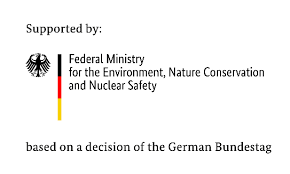UK government subsidizes fossil fuel investments in ISAs & pension products to the tune of nearly half a billion pounds per year
When it comes to fossil fuel subsidies, most people do not think of tax incentives on savings and pension products. But they can represent a significant unmapped source of funding for the fossil fuel industry, becoming a critical barrier in efforts to align government policy with climate goals. In a new analysis, 1in1000, a research program of the 2° Investing Initiative think tank, finds that the UK government provides an indirect fossil fuel investment subsidy through individual savings accounts (ISAs) and pension products of GBP 342-496 million per year.
As the UK has committed to net-zero carbon emissions and is set to host COP26, this disparity highlights the need for governments to do more to ensure that financial policies are aligned with the goals of the Paris Agreement.
Read the report here.
More on the analysis
The UK government foregoes a significant amount of revenue in the form of tax relief for personal savings (notably Individual Savings Accounts, or ISAs) and pension contributions. In total, this tax relief is equivalent to GBP 40 billion or 6% of overall government revenue – roughly twice the budget deficit pre-COVID. In the case of ISAs, the tax relief is linked to the return on investment, while in the case of pensions and personal savings allowance, the relief is linked to the money invested.
While these tax relief policies do not create sector-specific incentives, the nature of portfolio allocation de facto means that governments forego significant taxes associated with fossil fuel investment and returns. In the UK, we calculated that this loss amounts to GBP 342-496 million per annum.
Next steps
Even via ‘sector-neutral’ incentives, the UK government is both foregoing significant tax revenues and indirectly supporting investment in certain fossil fuel companies whose business model and capex plans violate the Paris Agreement goals.
Several weeks before the UK is set to host the UN Climate Change Conference in Glasgow, and as the UK and other governments are setting ambitious emissions reductions targets, these findings highlight the need to ensure better coherence between financial policy and climate objectives.
About our funders: This report is part of the International Climate Initiative (IKI). The Federal Ministry for the Environment, Nature Conservation and Nuclear Safety (BMU) supports this initiative on the basis of a decision adopted by the German Bundestag. It has also received funding from the European Union’s Life NGO program under Grant No. LIFE20 NGO/SGA/DE/200040. This work reflects only the authors’ views and the funders are not responsible for any use that may be made of the information it contains.




